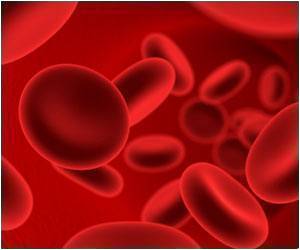A new type of white blood cell which activates a killing immune response to an external source was identified by researchers.

Dendritic cells (DCs) are a type of white blood cell that orchestrate our body's immune responses to infectious agents such as bacteria and viruses, as well as cancer cells. They are also very important for eliciting the immune response generated by vaccines.DCs kick start an immune response by presenting small fragments of molecules from micro-organisms such as bacteria and viruses, or from vaccines or tumours, called antigens on their surface. This leads to activation of another white blood cell subset called T cells, which specialise in killing cells and are crucial for eliminating cancerous or infected cells. Most cells are only able to present antigens from within themselves, and so will only elicit an immune response if they are infected themselves. Only a specialised subset of DCs is able to generate a response to an external source of antigen, for example bacteria, vaccines and tumours.
The identity of human tissue DCs that are capable of presenting external antigen to activate the cell-killing response by T cells - a process termed 'cross-presentation' - has remained a mystery. Their discovery, as revealed by this research, will help scientists to design better targeted vaccine strategies to treat cancer and infections such as Hepatitis B.
"These are the cells we need to be targeting for anti-cancer vaccines," said Dr Muzlifah Haniffa, a Wellcome Trust Intermediate Fellow and Senior Clinical Lecturer at Newcastle University. "Our discovery offers an accessible, easily targetable system which makes the most of the natural ability of the cell."
The researchers also showed for the first time that dendritic cell subsets are conserved between species and have in effect created a map, facilitating the translation of mouse studies to the human immune system.
"The cross-species map is in effect a Rosetta stone that deciphers the language of mouse into human", explains Matthew Collin, Professor of Haematology from Newcastle University.
Advertisement
This research will have significant impact on the design of vaccines and other targeted immunotherapies.
Advertisement
The Newcastle University team in collaboration with A*STAR's Singapore Immunology Network (SIgN) have for the first time ever aligned the dendritic cell subsets between mouse and humans allowing the accurate translation of mouse studies into the human model for the first time.
The researchers isolated the dendritic cells from human blood and skin and those from mouse blood, lung and liver. Using gene expression analysis, they identified gene signatures for each human dendritic cell subset. Mouse orthologues of these genes were identified and a computational analysis was performed to match subsets across species.
This provides scientists for the first time with an accurate model to compare DCs between species.
Professor Matthew Collin explains: "This is in effect a Rosetta stone that deciphers the language of mouse into human. It can put into context the findings from the extensive literature using mouse models to the human settings".
Dr. Haniffa added: "These gene signatures are available in a public repository accessible for all researchers to benefit from the data. It will allow detailed knowledge of individual human dendritic cell subsets to enable specific targeting of these cells for therapeutic strategy."
Source-Eurekalert














